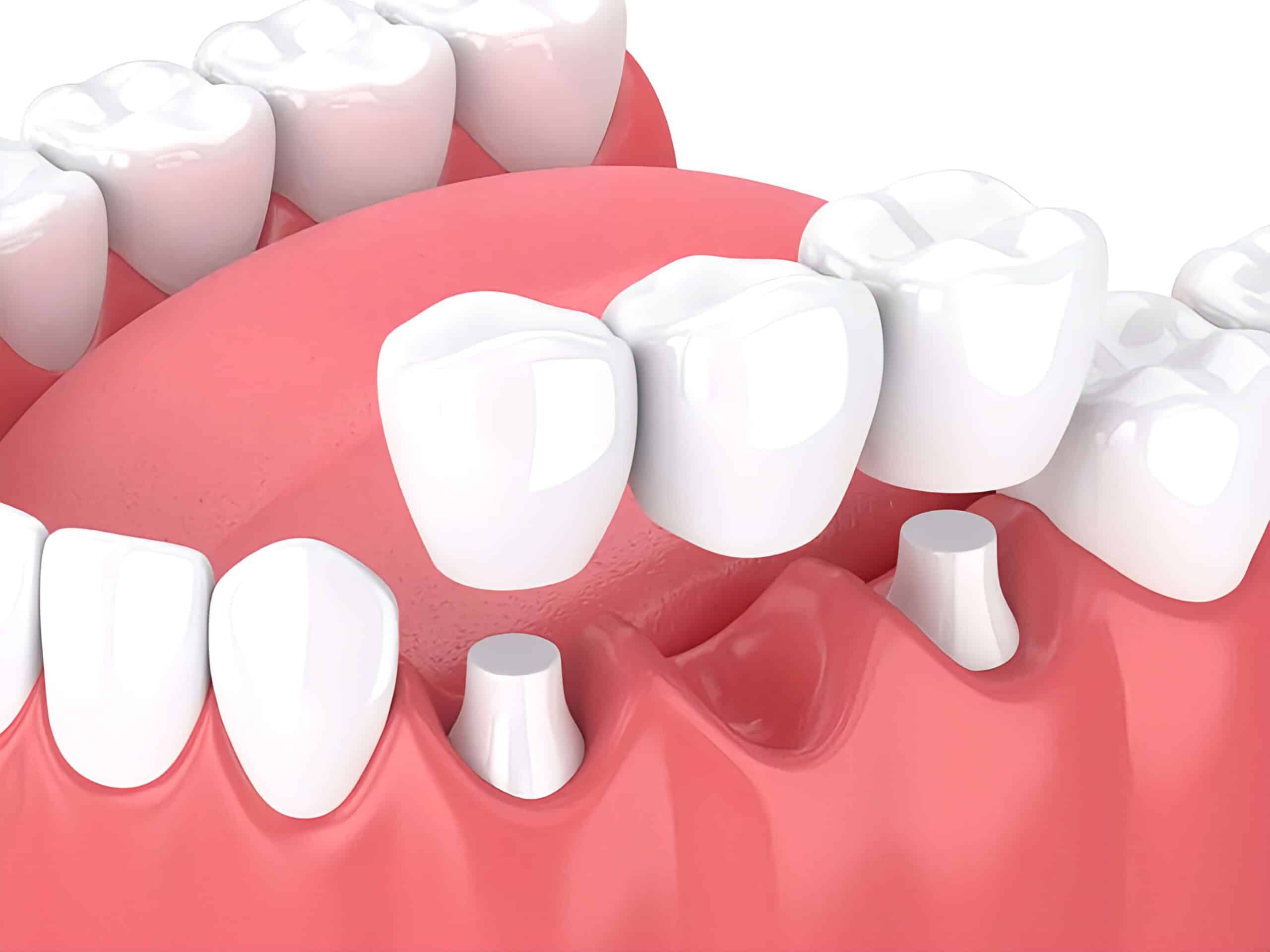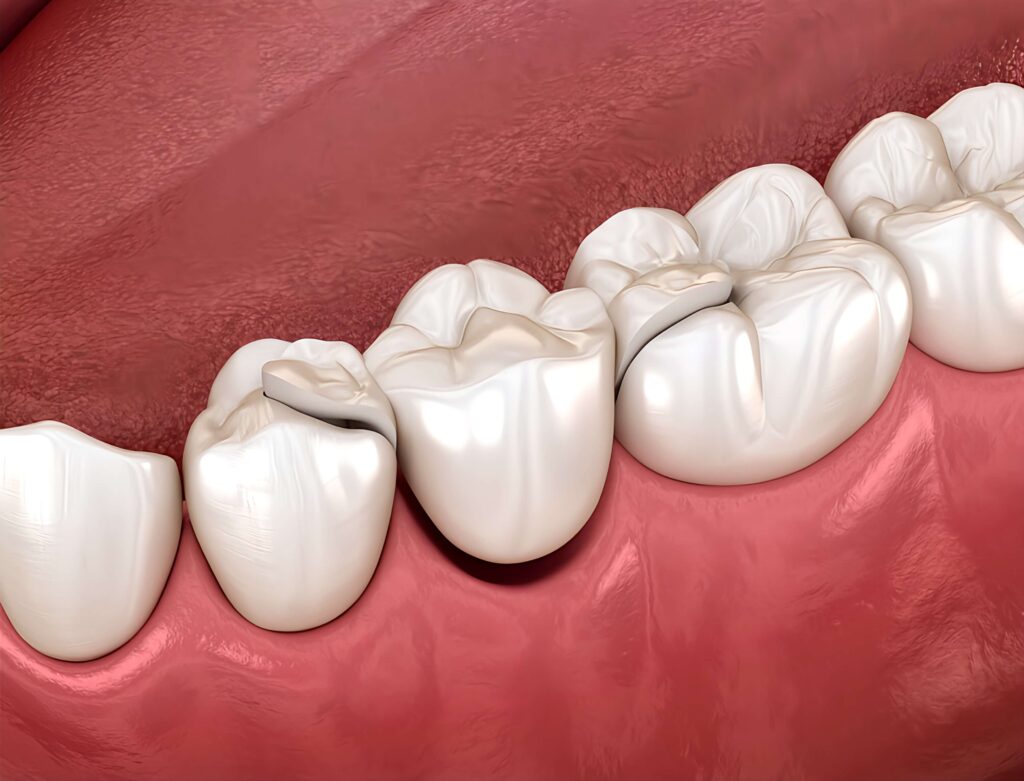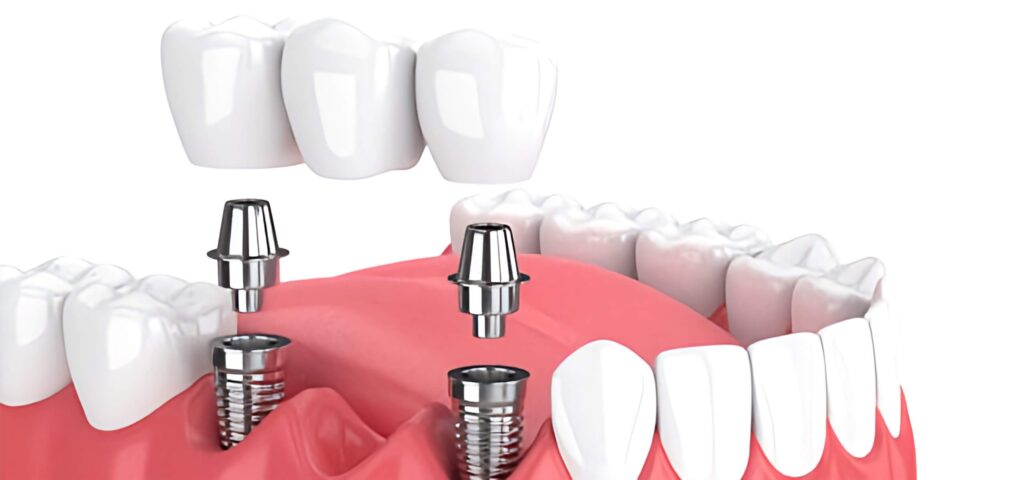Fixed Dental Bridges

A dental bridge is a fixed prosthetic treatment indicated in cases where it is necessary to replace the absence of one or more dental pieces. It provides the patient with a fixed, stable, comfortable and highly esthetic solution that restores proper masticatory function.
A fixed dental bridge consists of a fixed prosthesis made up of pontics and dental crowns joined together. The pontics would occupy the position of the missing tooth and the crowns are positioned on the teeth adjacent to the edentulous space called abutment teeth, acting as a bridge that holds the pontics in place. Selective wear must be performed on the teeth adjacent to the edentulous space (without teeth) to give it the shape of a stump so that a dental crown can be placed.
There are different types of dental bridges, some of them are:
Traditional dental bridge: This type of bridge is the most popular and is placed over healthy natural teeth located on both sides of the space with the missing teeth.

- Maryland dental bridge: Indicated to replace the absence of a single tooth. They are fastened by means of a small "tab" attached to the back of the teeth adjacent to the missing piece without the need to make a wear in the form of a stump.

- Fixed dental bridge on dental implants: Instead of the dental bridge being supported on natural teeth as in the case of the traditional dental bridge, this type of implants are supported on dental implants. This type of bridge is indicated in cases where the patient has an adequate bone condition and it is necessary to restore the absence of several continuous dental pieces.

- Cantilever dental bridge: This bridge is almost no longer used and is contraindicated today, however there are still patients with this type of bridge who have had it done many years ago. This dental bridge is supported only by a single natural tooth, leaving the pontic supported to the dental crown only on one side.

A candidate for fixed prosthetic dental bridge treatment is someone who has lost one or more teeth and the adjacent teeth have sufficient support and good periodontal health to support a dental bridge. Many patients lose their teeth due to extensive decay, periodontal disease, dental fractures, accidents, etc., and do not have sufficient bone support or do not have the budget to opt for dental implant treatment and are looking for a comfortable, fixed, esthetic and functional option to replace missing teeth.
The useful life of a fixed prosthetic treatment with dental bridges can vary according to several factors such as the material used, whether zirconium or metal-porcelain, normal wear over time and mainly due to the patient's care.
In general, a fixed dental bridge with proper care can last for many years, even decades. However, the main and key factor in the longevity of the dental treatment depends on the patient, who must maintain proper oral hygiene through proper tooth brushing, flossing every day mainly at night before sleeping, the use of aids such as waterpik, as well as attending the dentist every 6 months for a dental cleaning and control x-rays to keep monitoring the evolution and sealing of the treatment.
In addition to hygienic care, you should avoid biting on very hard foods or using your teeth as a tool to open objects, as this can not only cause the material from which the fixed dental bridge was made to be stripped, but can also cause fractures in the material, which would lead to having to make a new bridge to replace it.
At the Sonrisa para Todos dental clinic we have the solution for each case. If you want to know if you are a candidate for fixed dental bridges and rediscover the pleasure of smiling, ask for an appointment. appraisal appointment and treatment plan with 3D tomography at 4010-3333, 4010-3333, 4010-3333, 4010-3333, 4010-3333 or 4010-3333. WhatsApp 7031-7979. It will be a pleasure for us to serve you.

